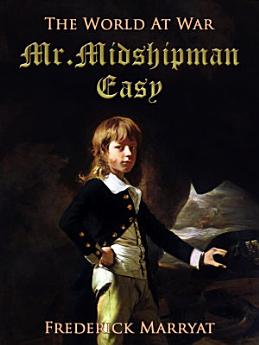Mr. Midshipman Easy
Sep 2016 · Otbebookpublishing
Ebook
356
Pages
family_home
Eligible
info
reportRatings and reviews aren’t verified Learn More
About this ebook
Captain Frederick Marryat (1792-1848) was an English novelist, a contemporary and acquaintance of Charles Dickens, noted today as an early pioneer of the sea story. "Mr. Midshipman Easy" is the adventurous youth of a nineteenth-century literary hero who leaves the luxury of his father's estate to suffer the realities of growing up at sea in his Majesty's service.
About the author
Frederick Marryat (1792-1848) was a pioneering English novelist and naval officer whose adventurous life and literary contributions left an indelible mark on 19th-century literature. Born into a well-to-do family in London, Marryat joined the Royal Navy at the tender age of 14, experiencing firsthand the tumultuous Napoleonic Wars. His naval career, marked by bravery and innovation—he invented a lifeboat and a system of maritime signaling—provided rich material for his later writings.Marryat's transition from sailor to author was seamless, as he channeled his seafaring experiences into vivid, action-packed narratives that captivated readers. His works are celebrated for their authentic depiction of naval life, blending realism with adventure, humor, and keen social observation. Marryat's storytelling prowess influenced a generation of writers, including Herman Melville and Joseph Conrad, who admired his ability to bring the high seas to life.Controversially, Marryat's candid portrayal of naval discipline and the British class system sparked debates, challenging the romanticized views of maritime glory. His characters often grappled with issues of authority, justice, and personal freedom, reflecting his progressive views on social reform and human rights.A man of many talents, Marryat also dabbled in politics and journalism, advocating for naval reforms and contributing to various periodicals. His legacy endures not only through his literary works but also through his impact on maritime literature, inspiring countless readers and writers to explore the vast, uncharted waters of human experience.
Rate this ebook
Tell us what you think.
Reading information
Smartphones and tablets
Install the Google Play Books app for Android and iPad/iPhone. It syncs automatically with your account and allows you to read online or offline wherever you are.
Laptops and computers
You can listen to audiobooks purchased on Google Play using your computer's web browser.
eReaders and other devices
To read on e-ink devices like Kobo eReaders, you'll need to download a file and transfer it to your device. Follow the detailed Help Center instructions to transfer the files to supported eReaders.








